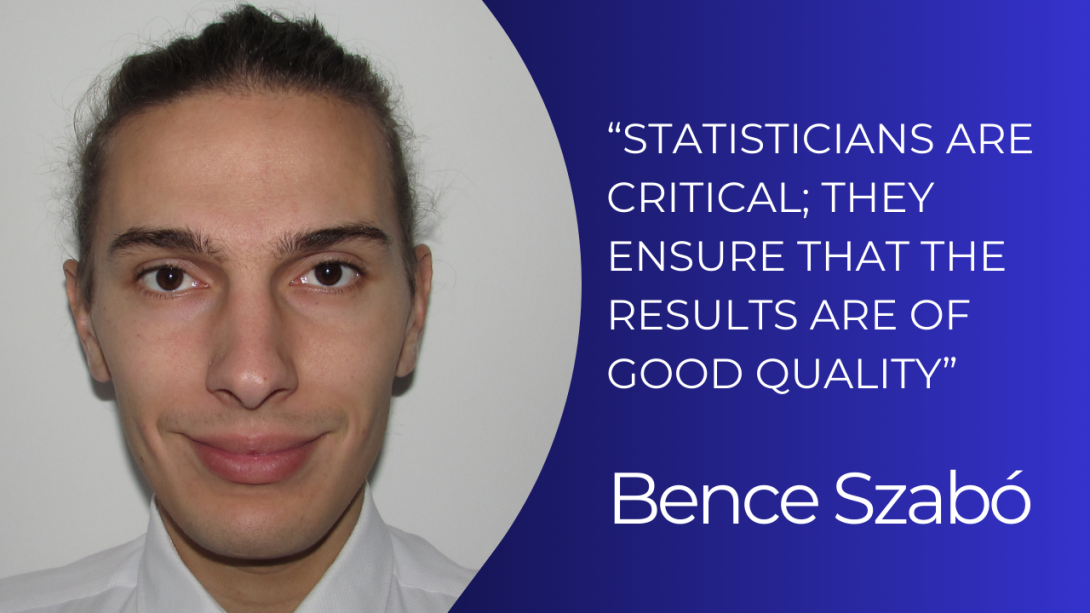
As a biologist, he studied the teeth of large prehistoric mammals, concurrently delving into biostatistics. He helps many groups with meta-analyses, always approaching topics critically. In October, Bence Szabó was named the Best Statistician of the Month.
Bence Szabó joined the work of the Centre for Translational Medicine at the beginning, being a member of the first team. In his first and second years, he helped the dental team to prepare the meta-analyses. “Originally, I graduated as a biologist from the University of Veterinary Medicine, focusing on paleontology and the teeth of Ice Age mammals. Because of this, I felt that dentistry was close to my own field of research. The structure and function of teeth of humans and animals are still the same today. Biostatistical work is also made easier by the fact that, as a biologist, I am familiar with the technical terms. Today, I am involved with the work of the Dermatology and Immunology Group and the Intensive Therapy Groups.”
Bence Szabó was already involved in mathematics during his bachelor's and master's studies and became a “self-made” statistician in the Department of Paleontology at ELTE during his doctoral studies. He is now studying to become officially a biostatistician and will obtain his degree soon. “We are not involved in the research planning, students and supervisors work on their topics independently. Once the questions are formulated and they have found articles, they consult with us, and afterward, we provide our opinions. As statisticians, we are always critical of research, making sure that the results are of good quality.”
One particular challenge in meta-analyses is the potential difficulty in finding enough articles for analysis. It is also a difficulty if there are enough articles, but the reporting of results is not homogeneous enough to allow comparison. “For example, sometimes publications answer the same question, but in completely different ways. In such cases, we are helpless; we cannot use them. Another difficulty in conducting meta-analyses is that they cannot be planned in advance; they are not like clinical trials.” For Bence Szabó, the greatest achievement is when there is a difficult project that uses methods he is not yet familiar with, but he succeeds in it. He experienced this right from the first year when he had to undertake two very difficult meta-analyses, and the results were favorable. Huge challenges are always sources of joy for him.
(Emese Szabó)